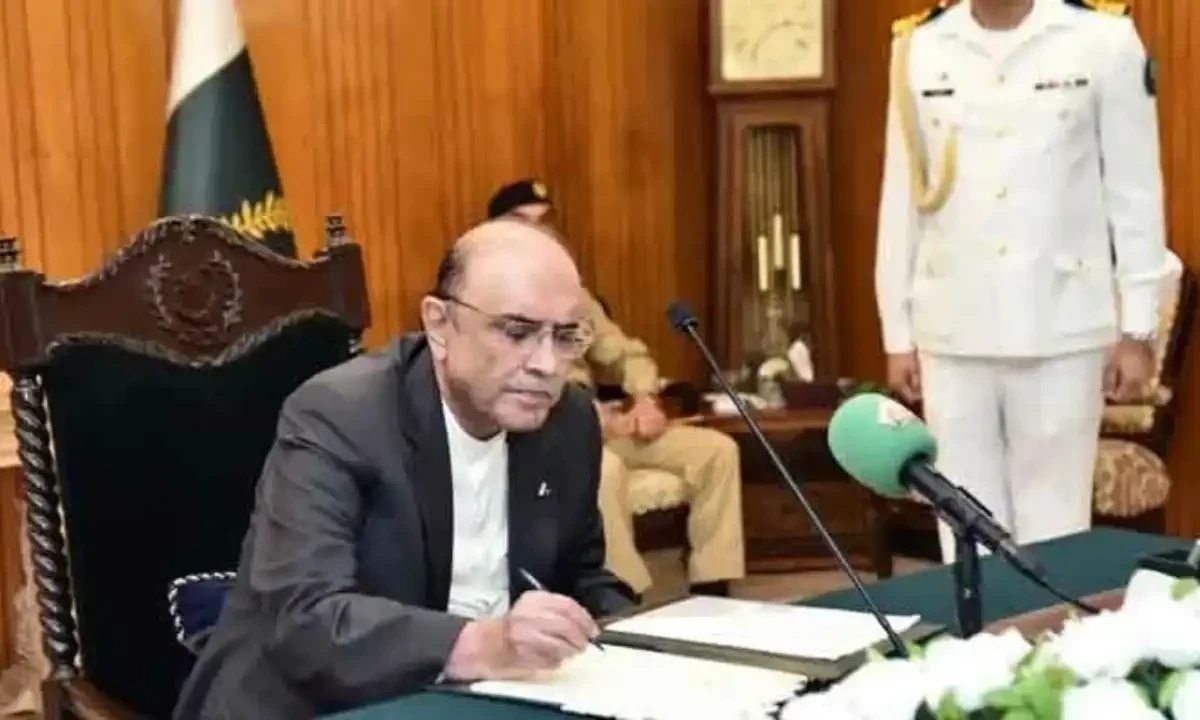President Asif Ali Zardari has officially signed the amendment to the Prevention of Electronic Crimes Act (PECA) into law, despite strong opposition from journalist organizations and media rights groups. The move has sparked concerns among press freedom advocates, who argue that the amendments could be used to stifle freedom of speech and curtail independent journalism.
Concerns from the Journalistic Community
Various journalist unions and media watchdogs had urged the president to reconsider approving the law, citing fears that it could be misused to target dissenting voices and limit press freedom. Critics argue that the amendments grant authorities greater power to regulate digital content, potentially leading to the suppression of investigative journalism and critical reporting.
Government’s Justification
Defending the amendment, government officials claim that the changes aim to combat misinformation, cyber harassment, and digital defamation. They emphasize that the revised law is intended to ensure accountability and prevent the spread of false narratives that could harm individuals and institutions. The administration insists that the law will be implemented with fairness and will not be used to silence legitimate journalism.
Legal and Political Implications
Legal experts warn that the new provisions could have far-reaching consequences, potentially increasing censorship and limiting citizens’ digital rights. Opposition parties have also criticized the move, arguing that it represents a step backward for democracy and free speech in Pakistan. Some lawmakers have pledged to challenge the law in court, seeking judicial intervention to protect fundamental rights.
Future of Press Freedom in Pakistan
With the PECA amendment now enacted, journalists and civil society organizations remain vigilant, calling for transparent enforcement and safeguards against misuse. Many have vowed to continue advocating for media freedoms, urging policymakers to strike a balance between regulating online content and upholding democratic values.
As the debate continues, the impact of this legislation on press freedom and digital rights in Pakistan remains to be seen. Observers stress the need for ongoing dialogue between the government, journalists, and human rights organizations to ensure that regulatory measures do not infringe upon fundamental freedoms.





